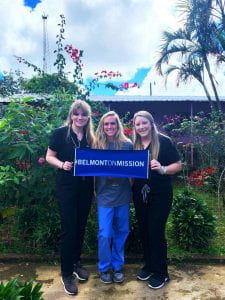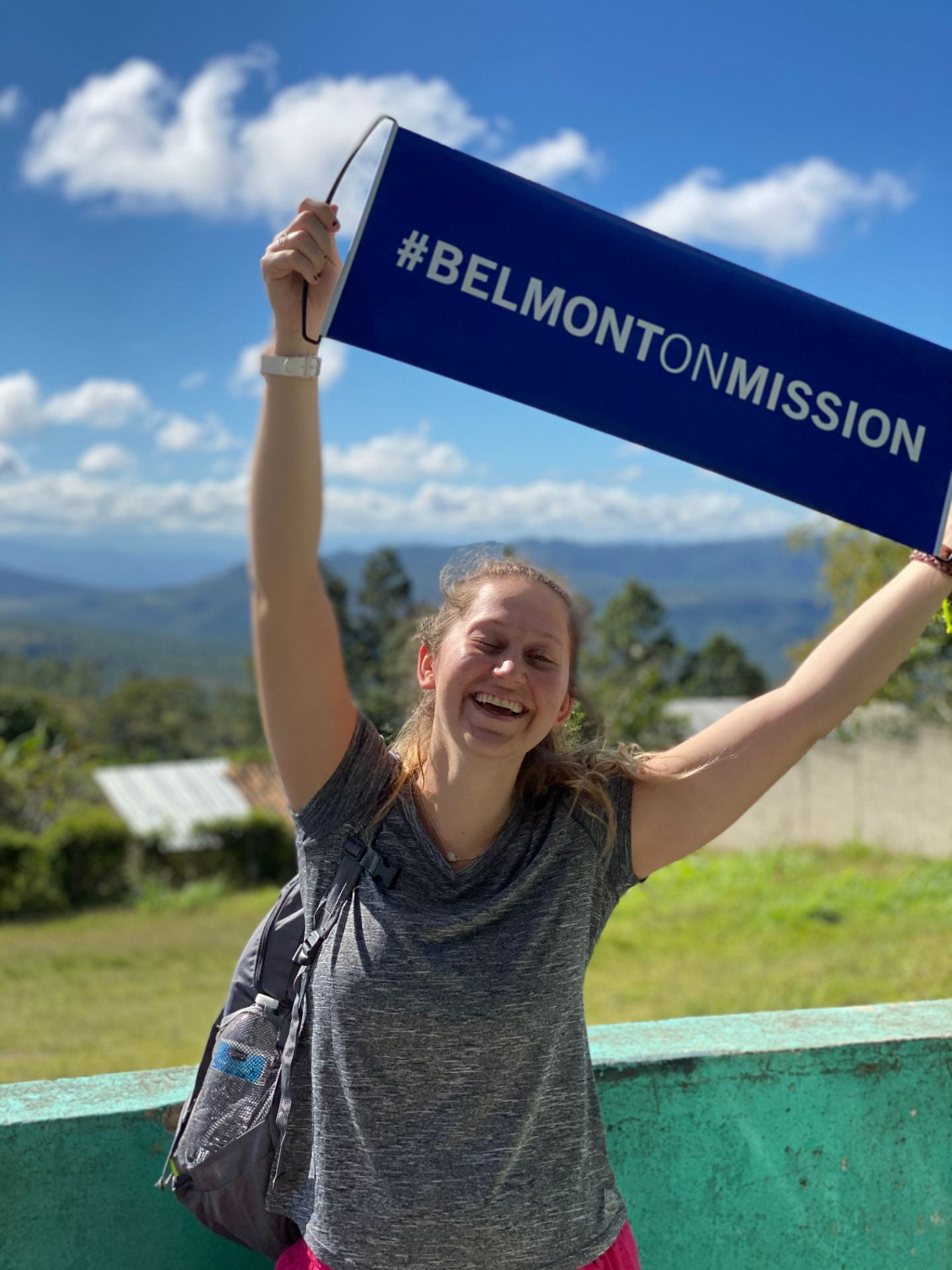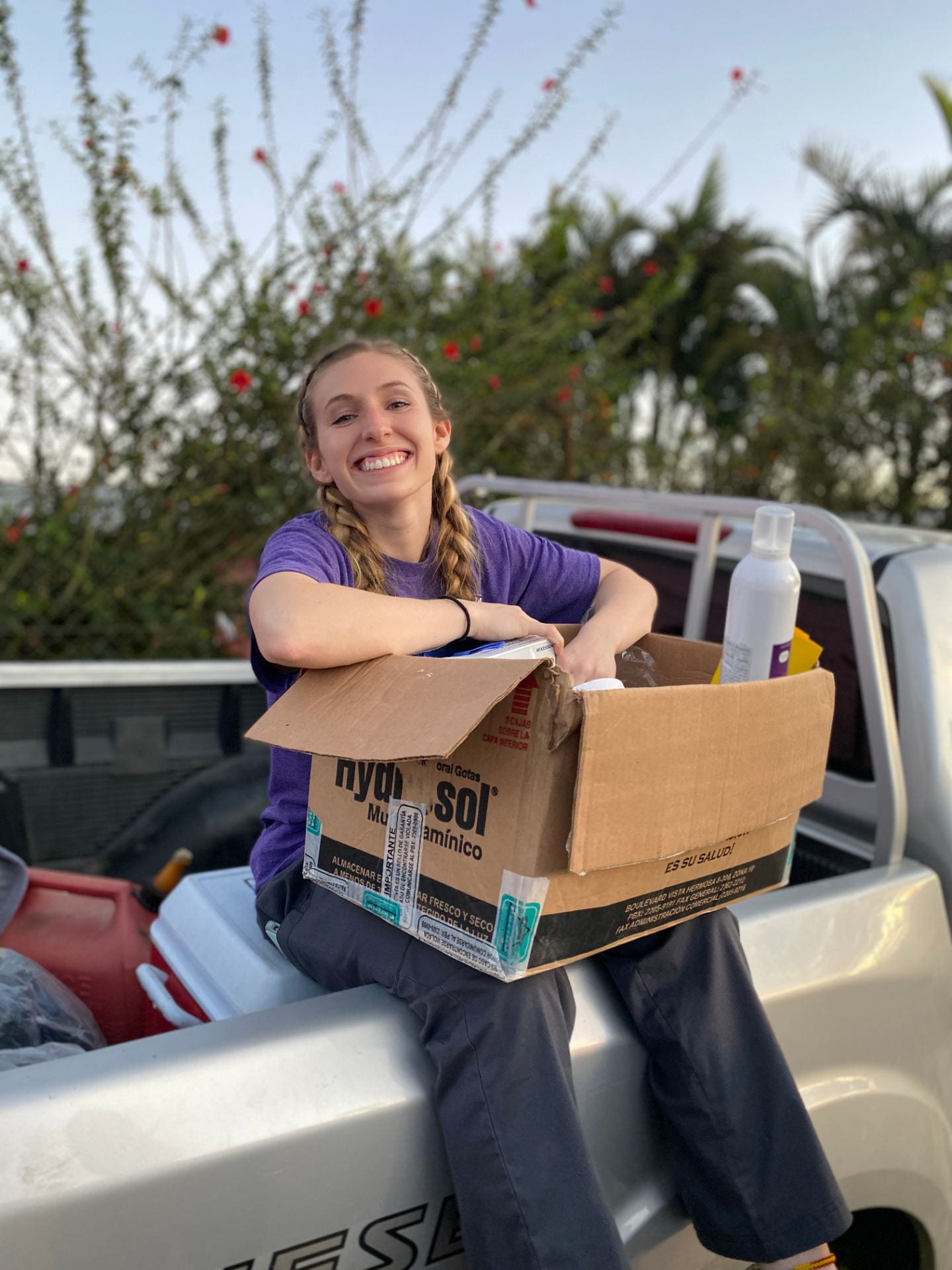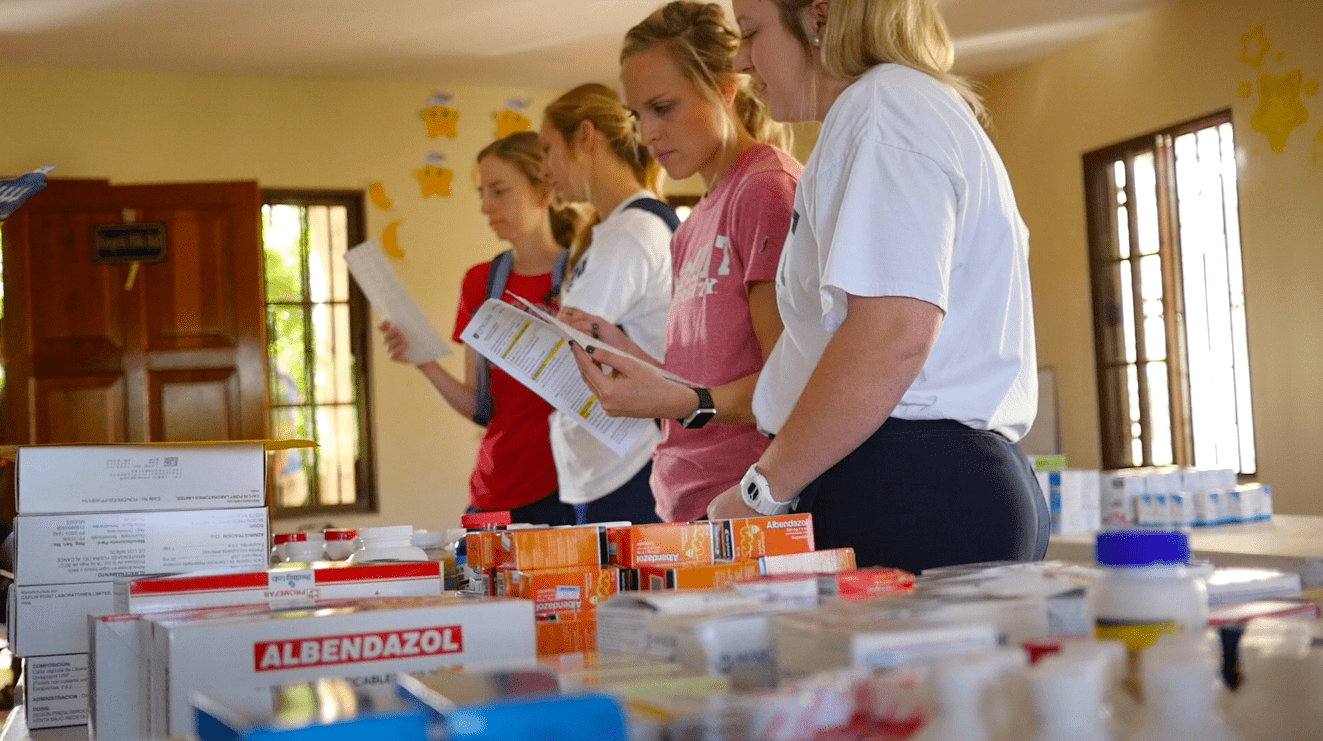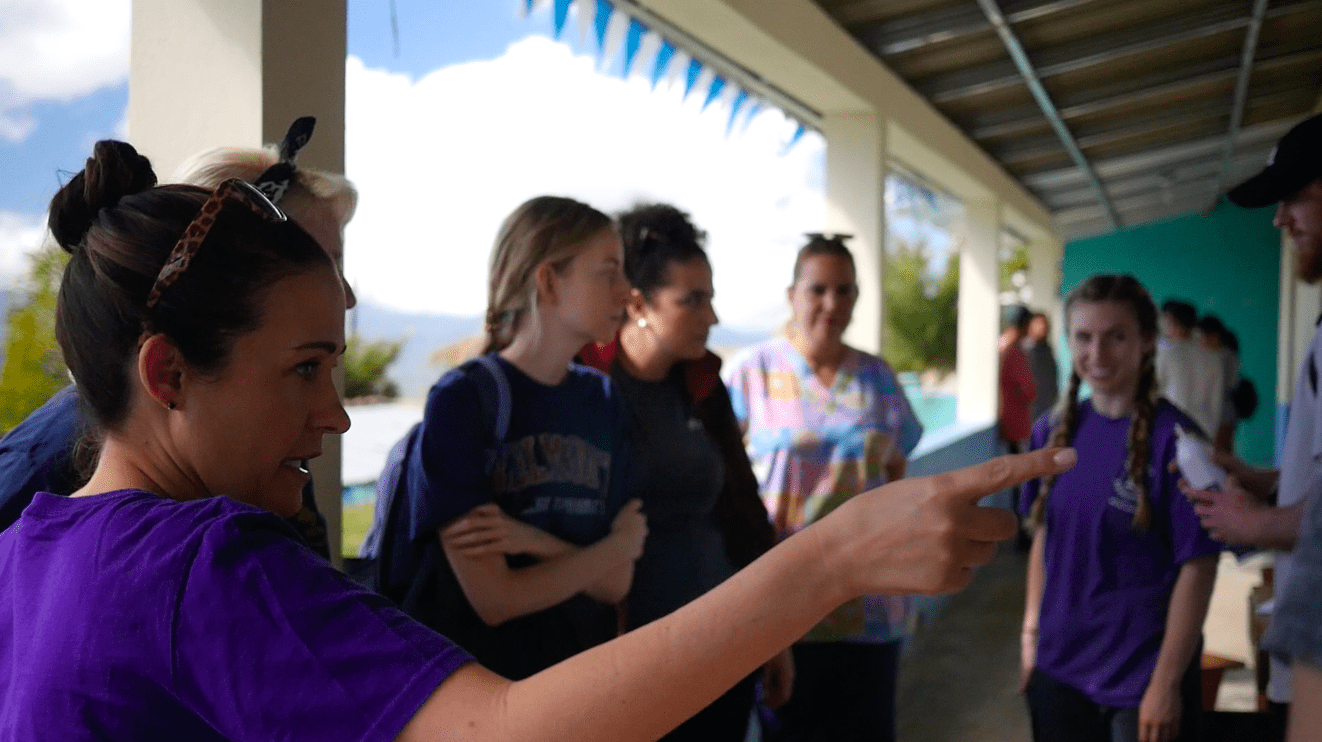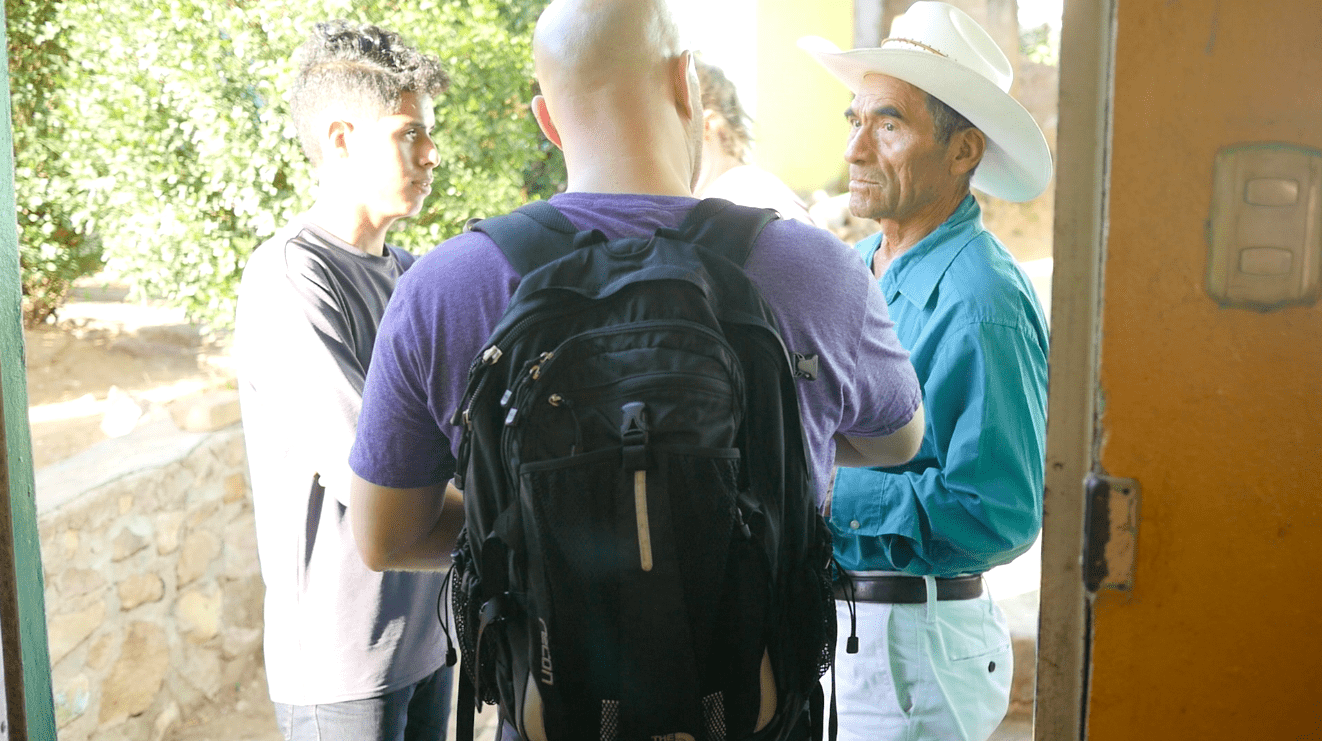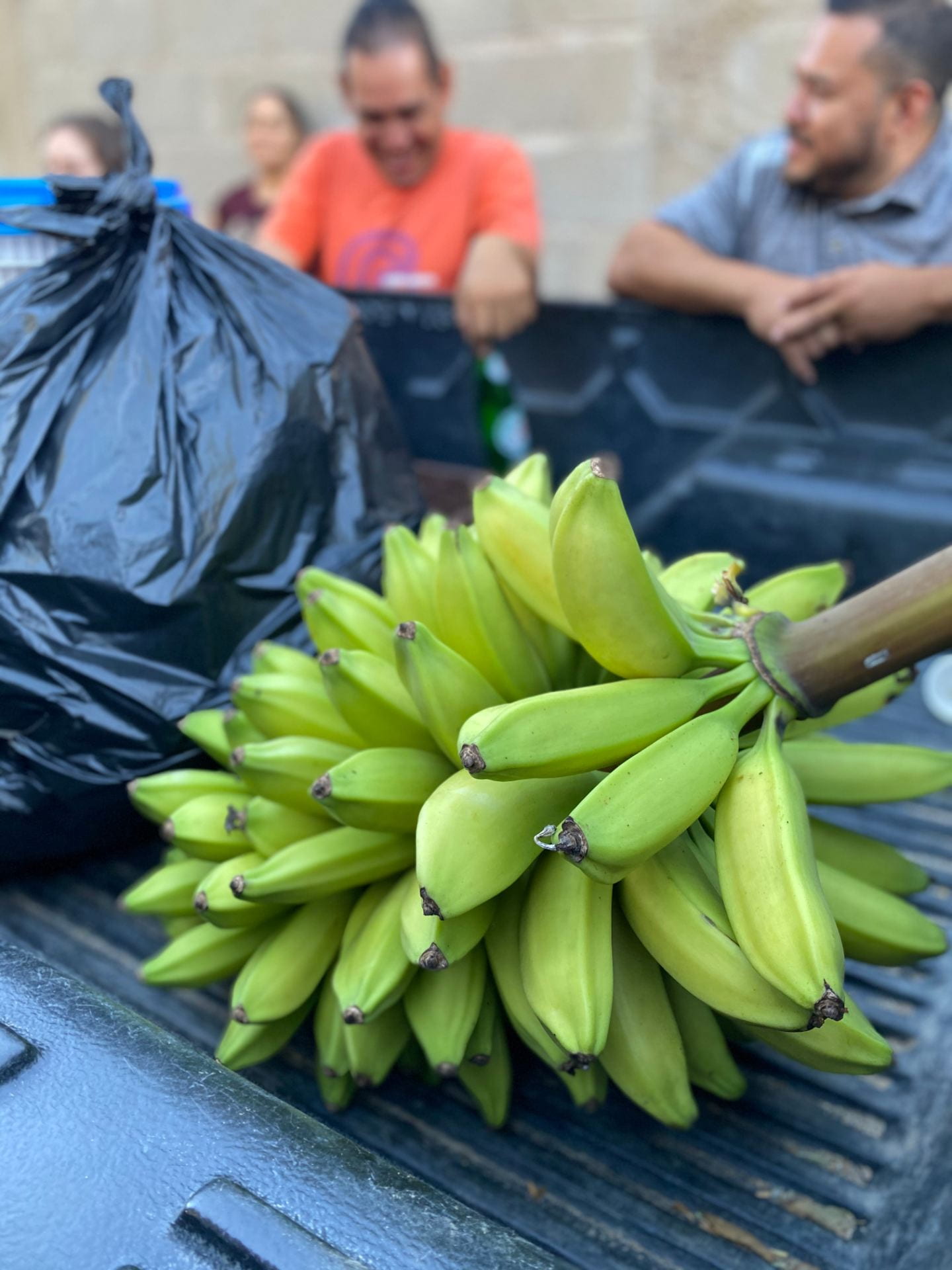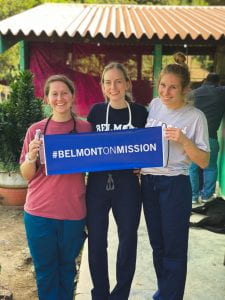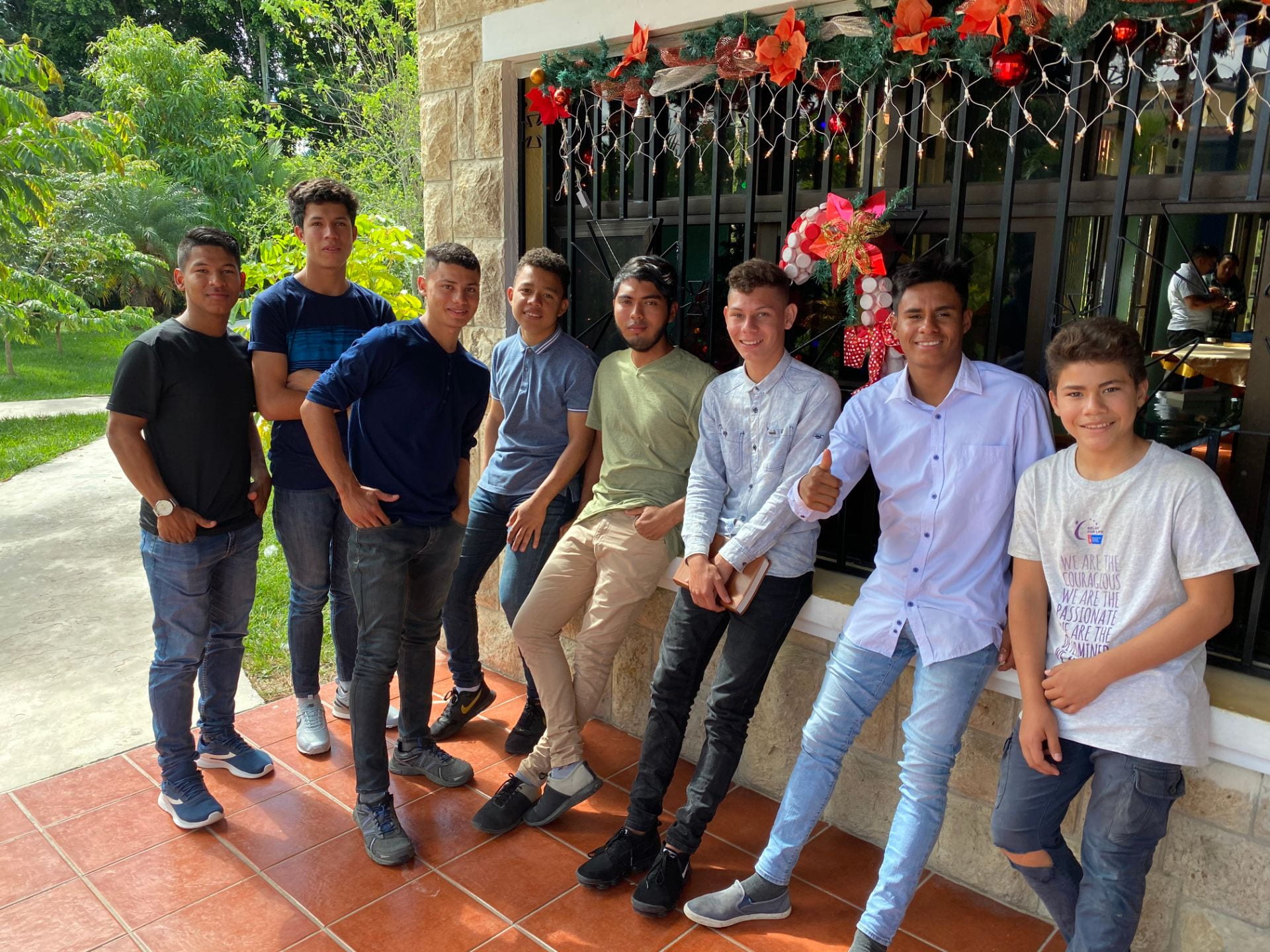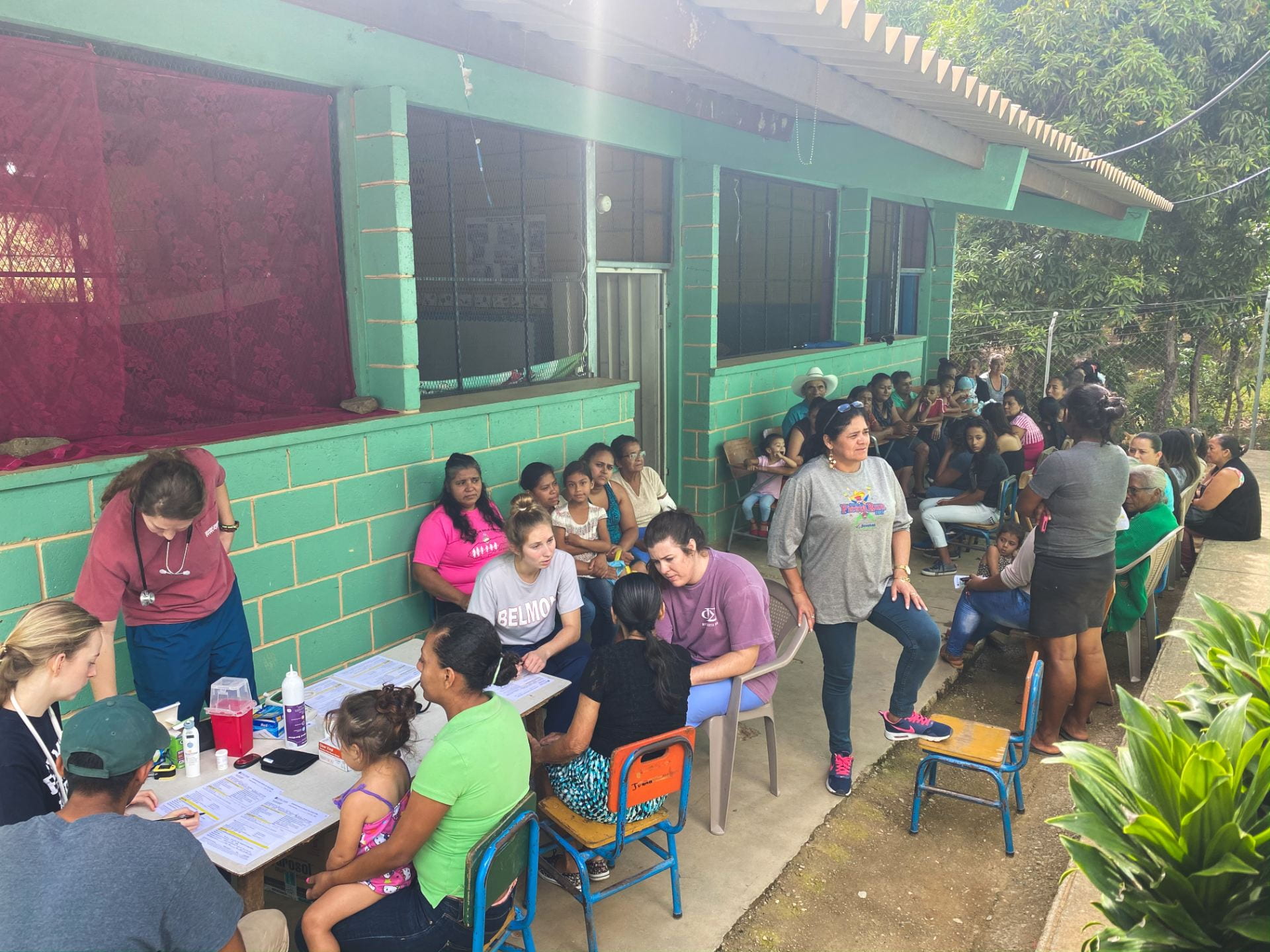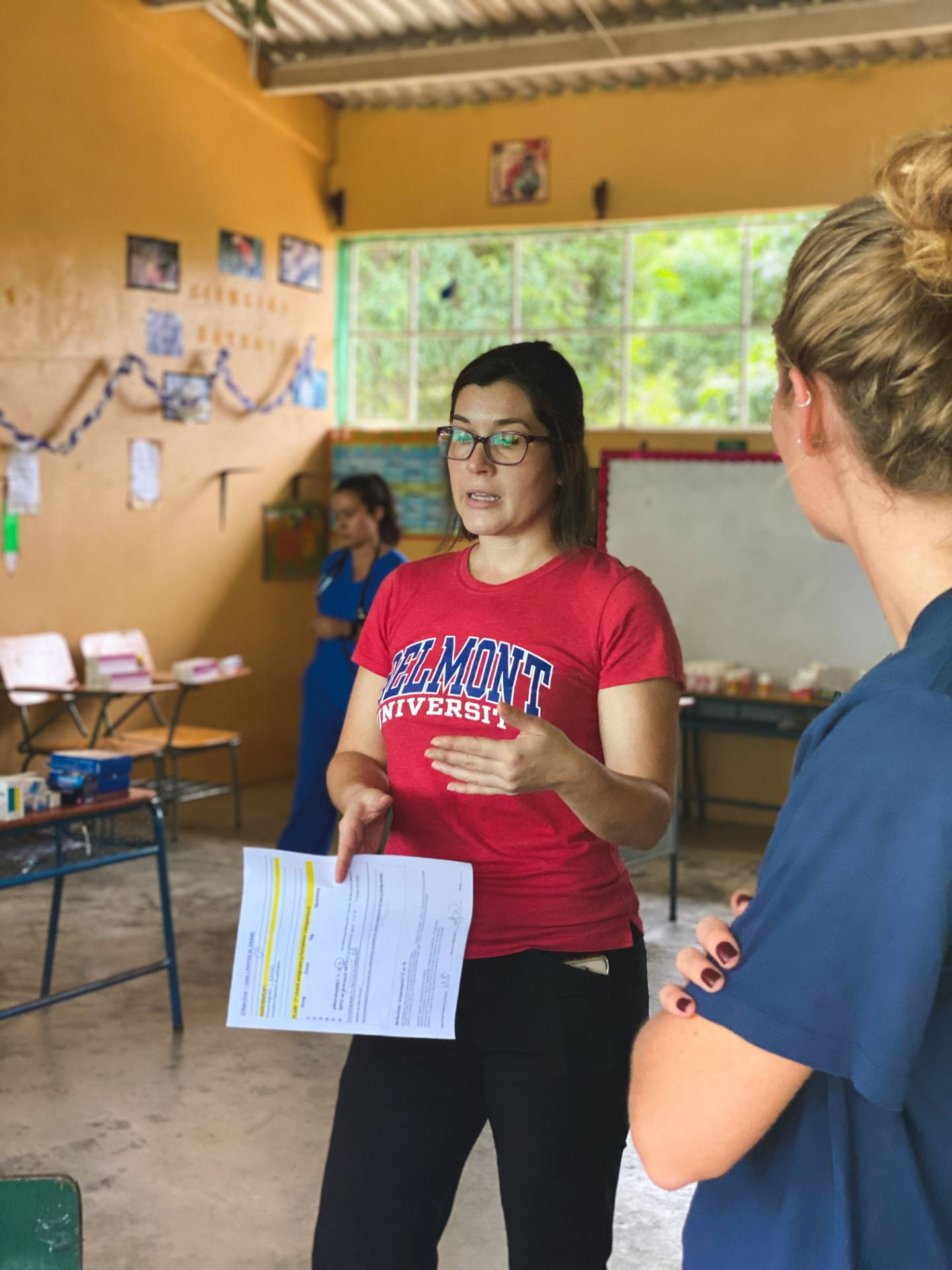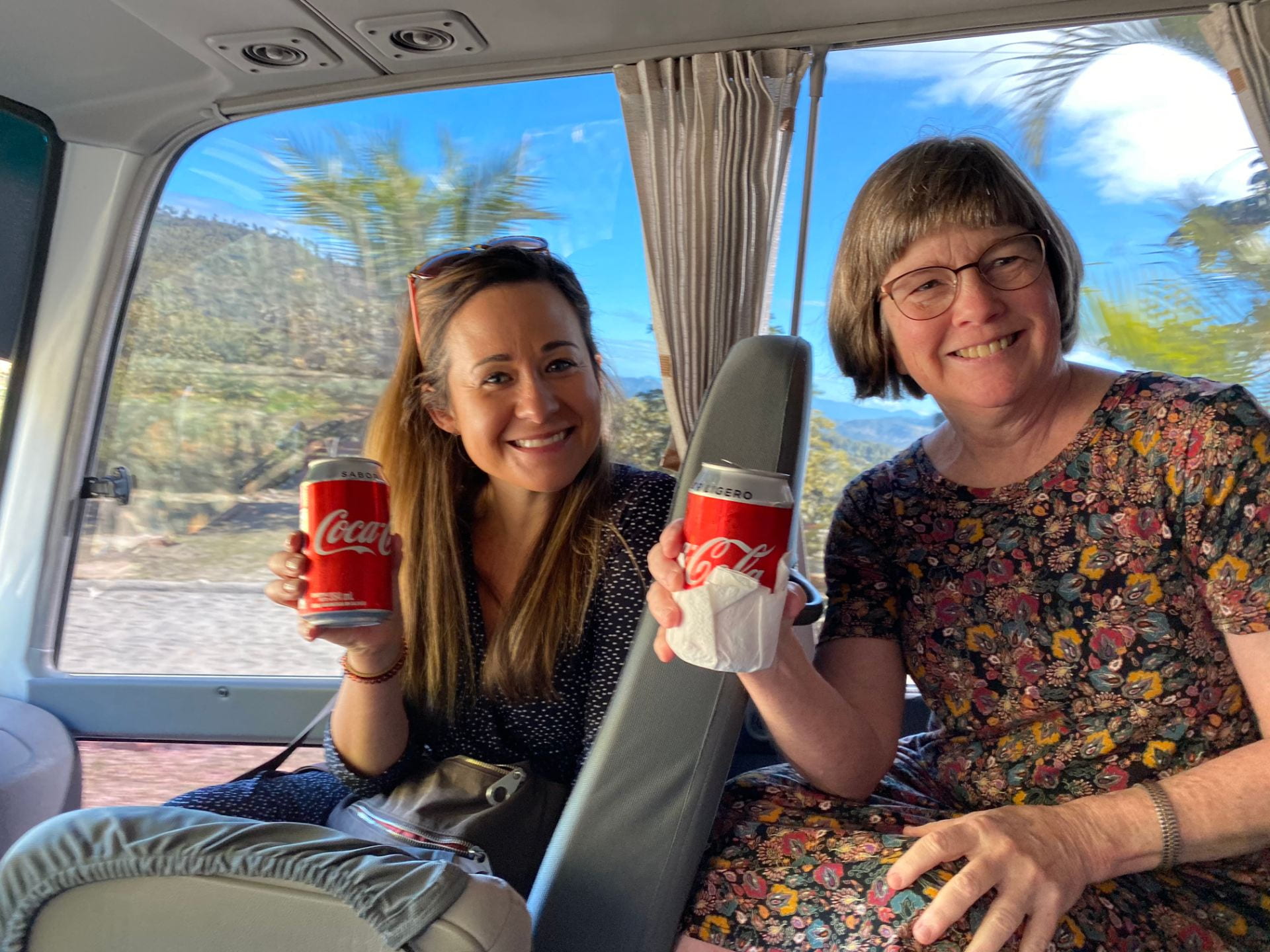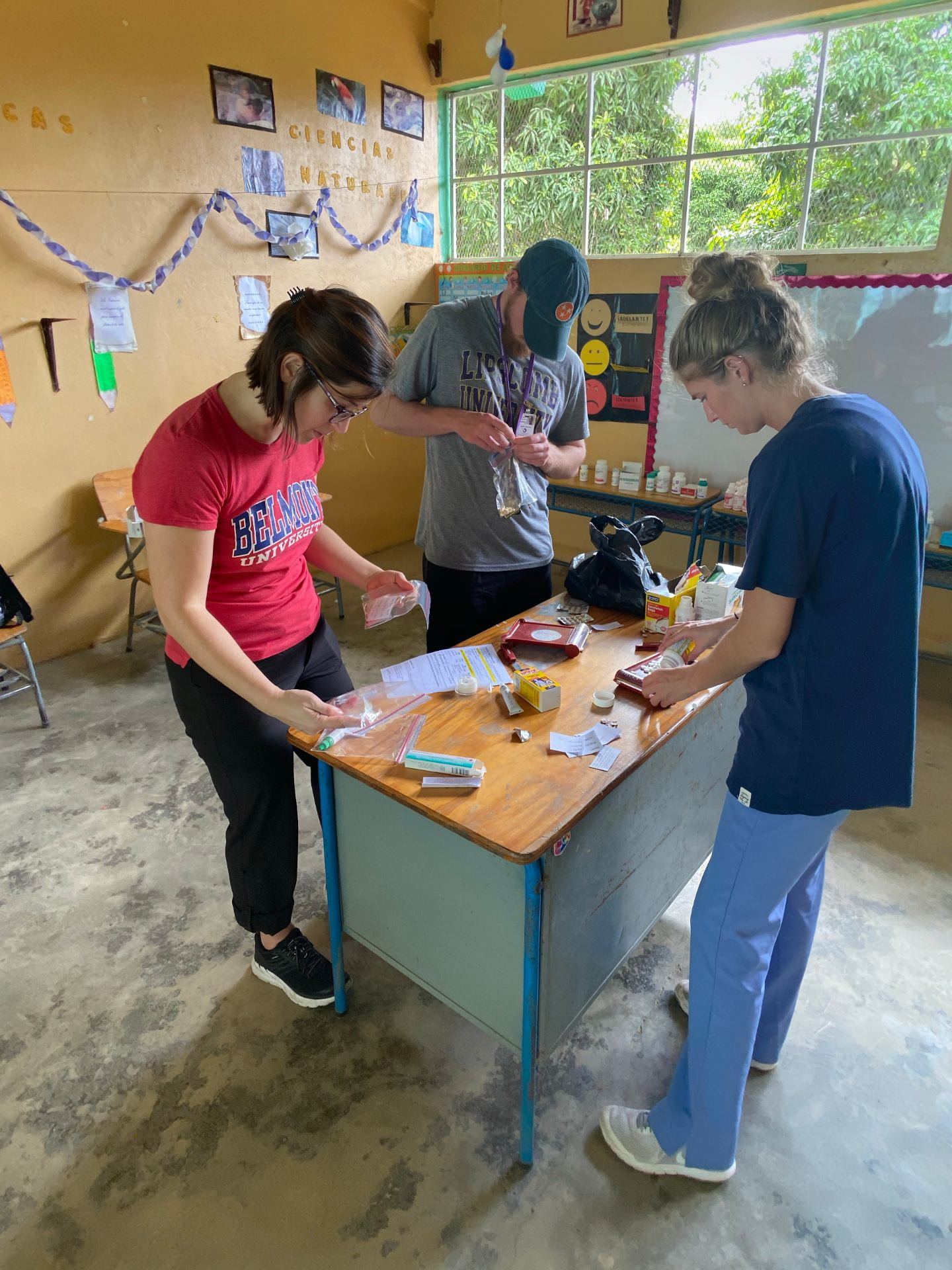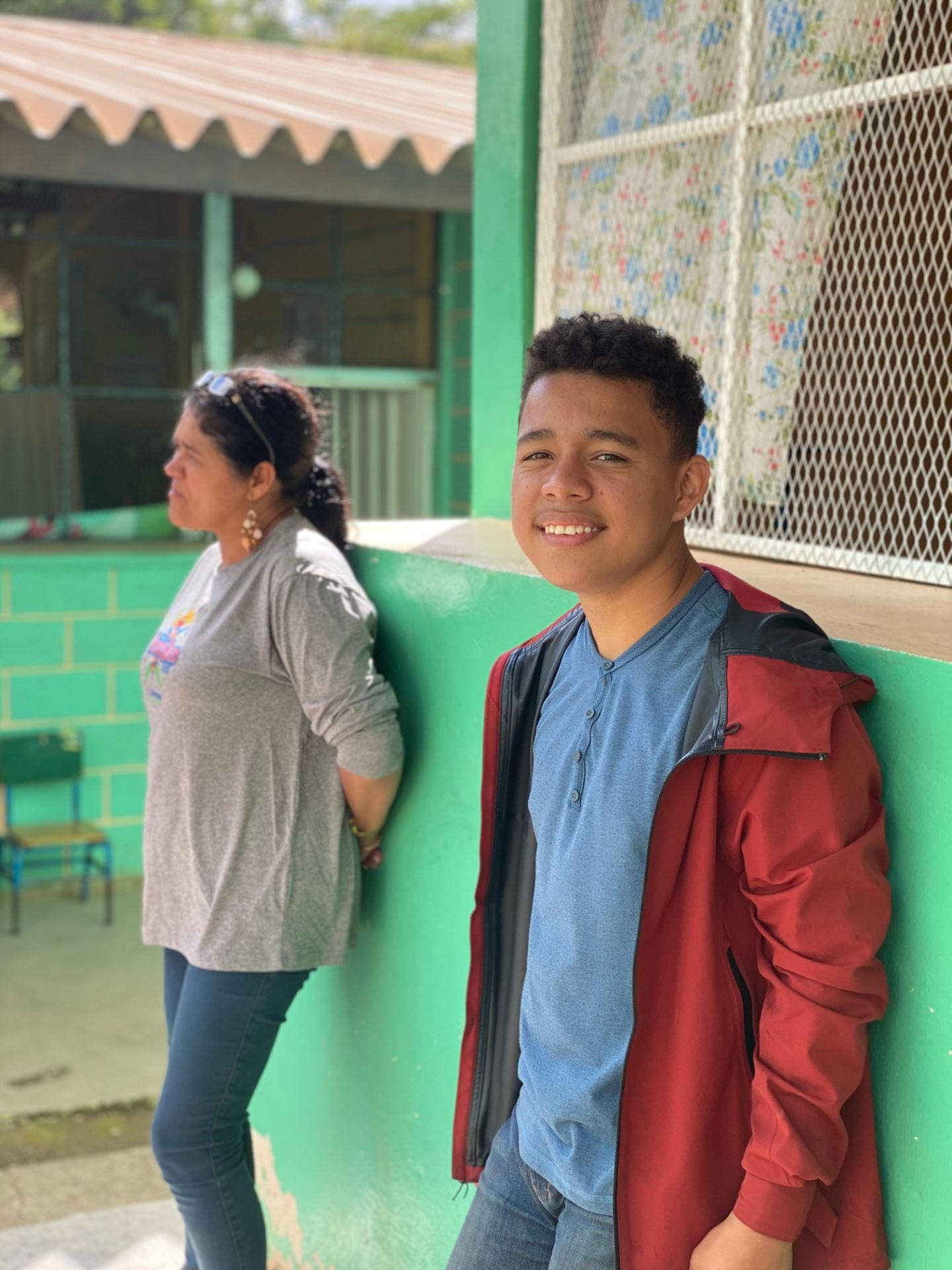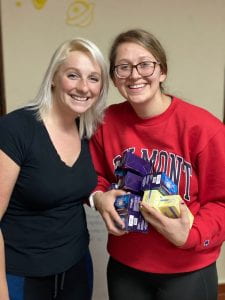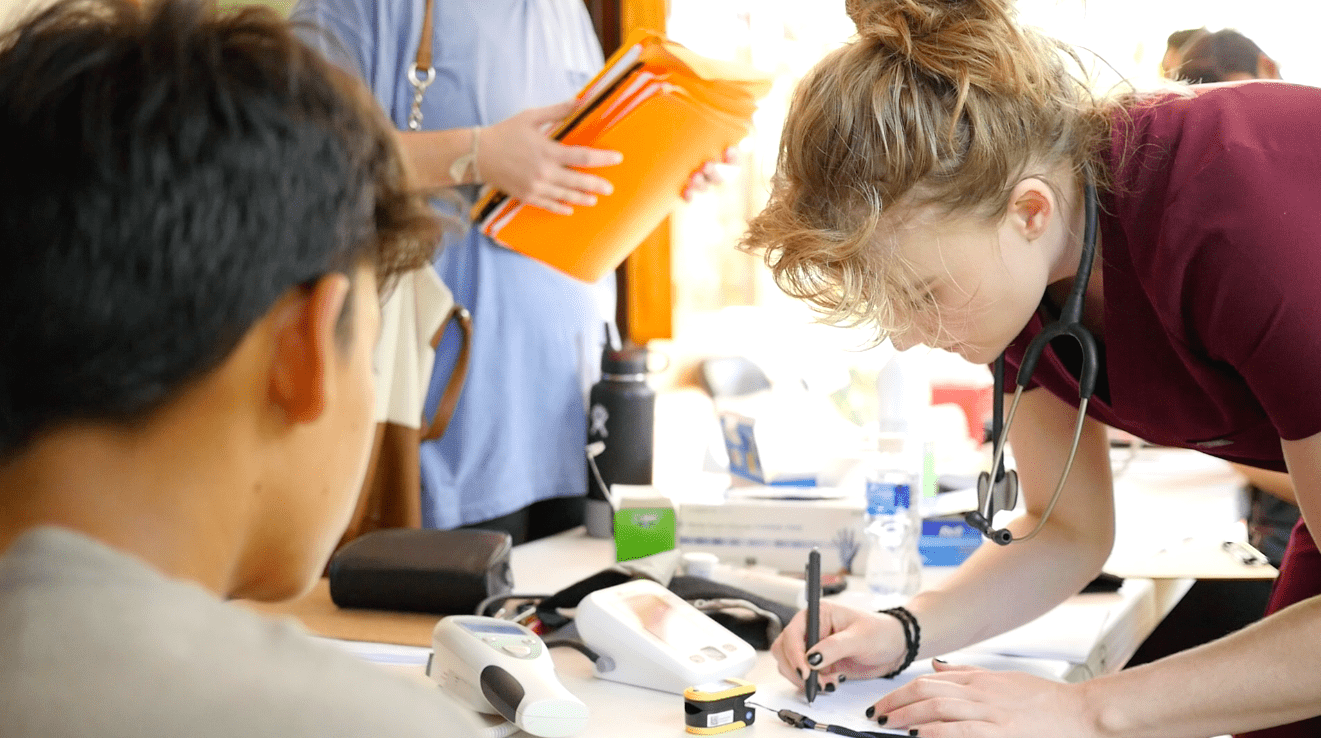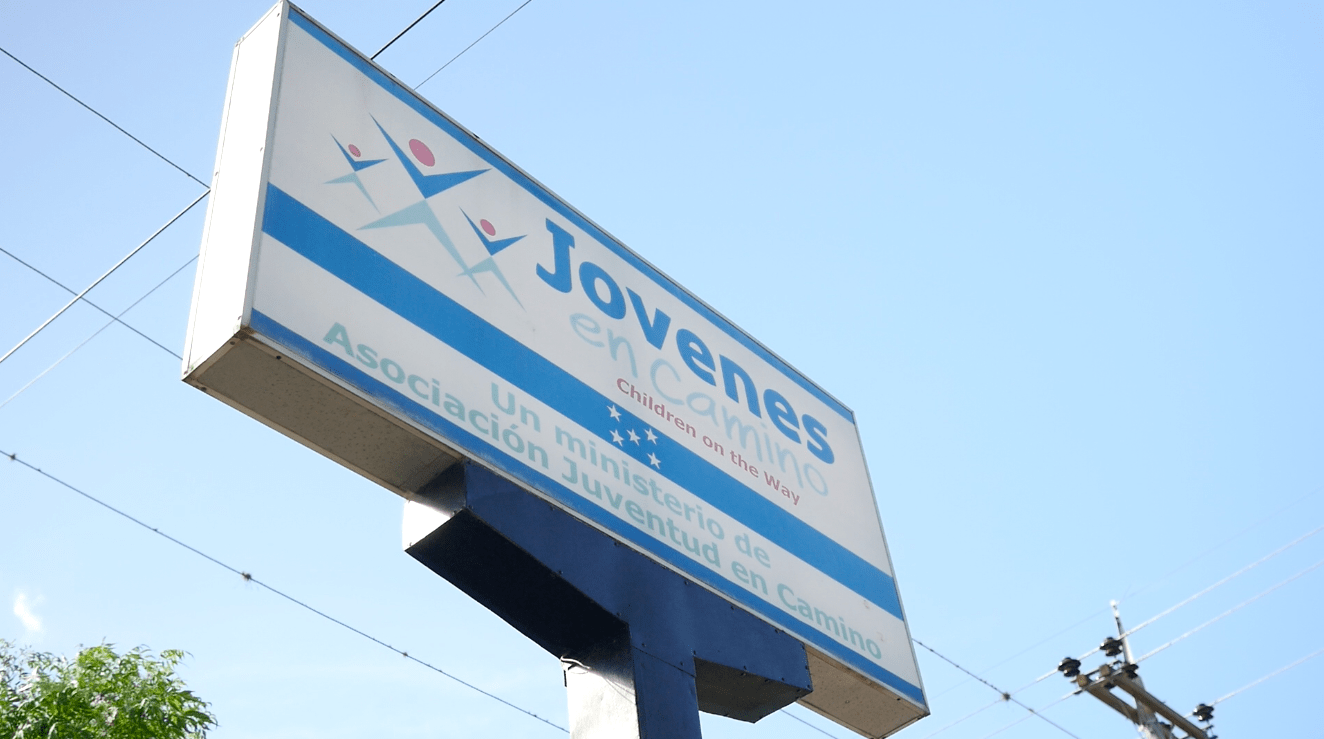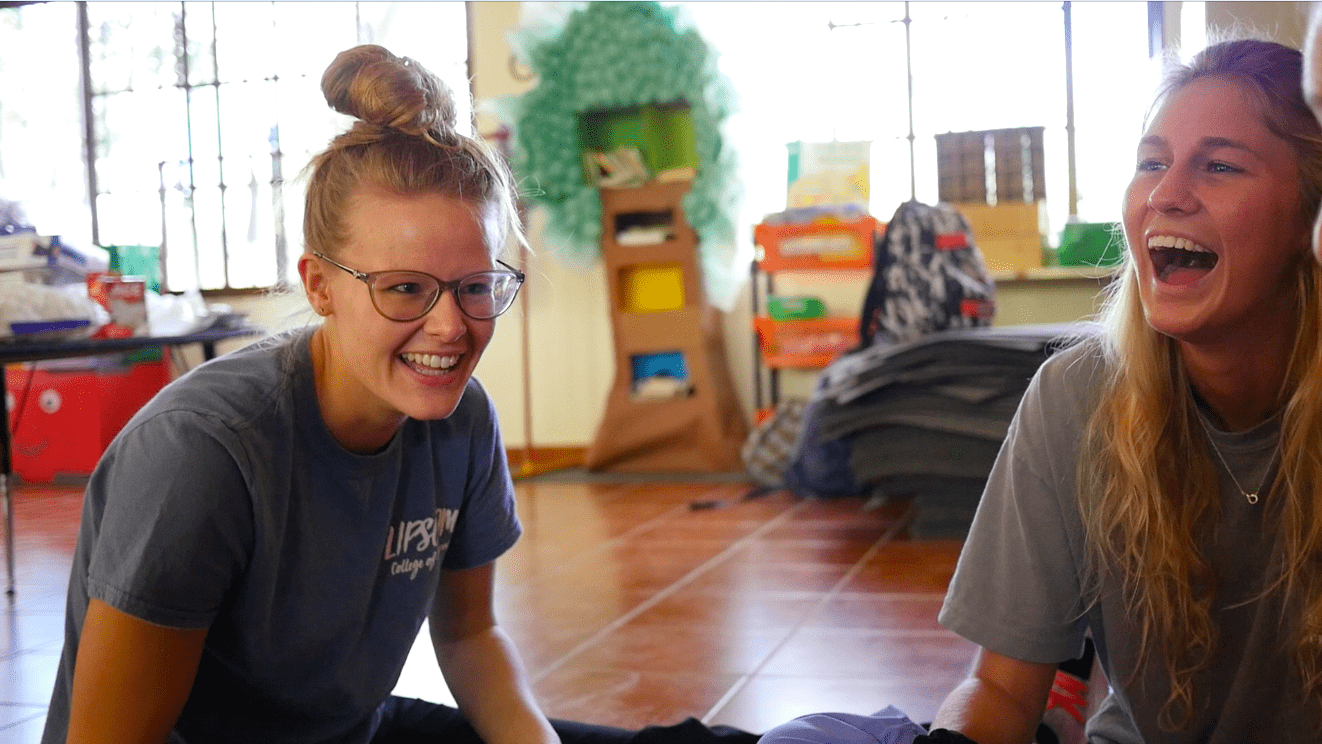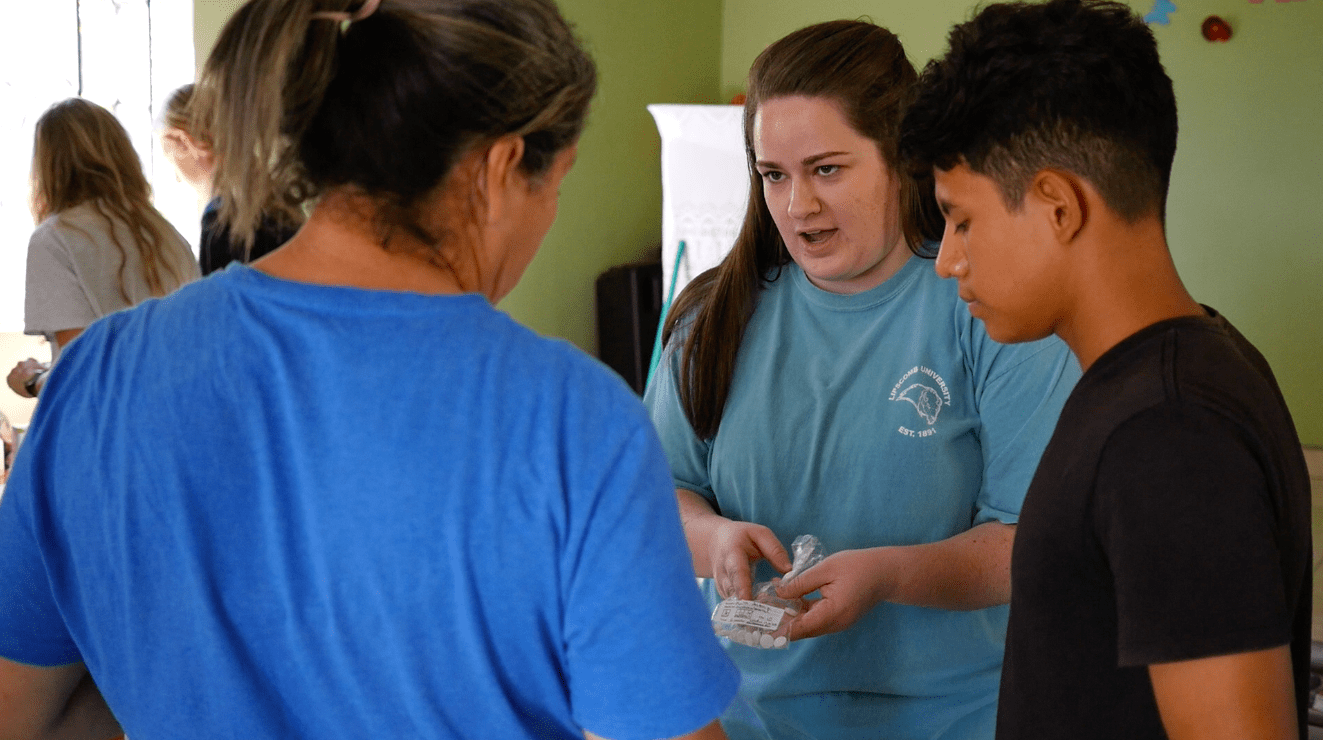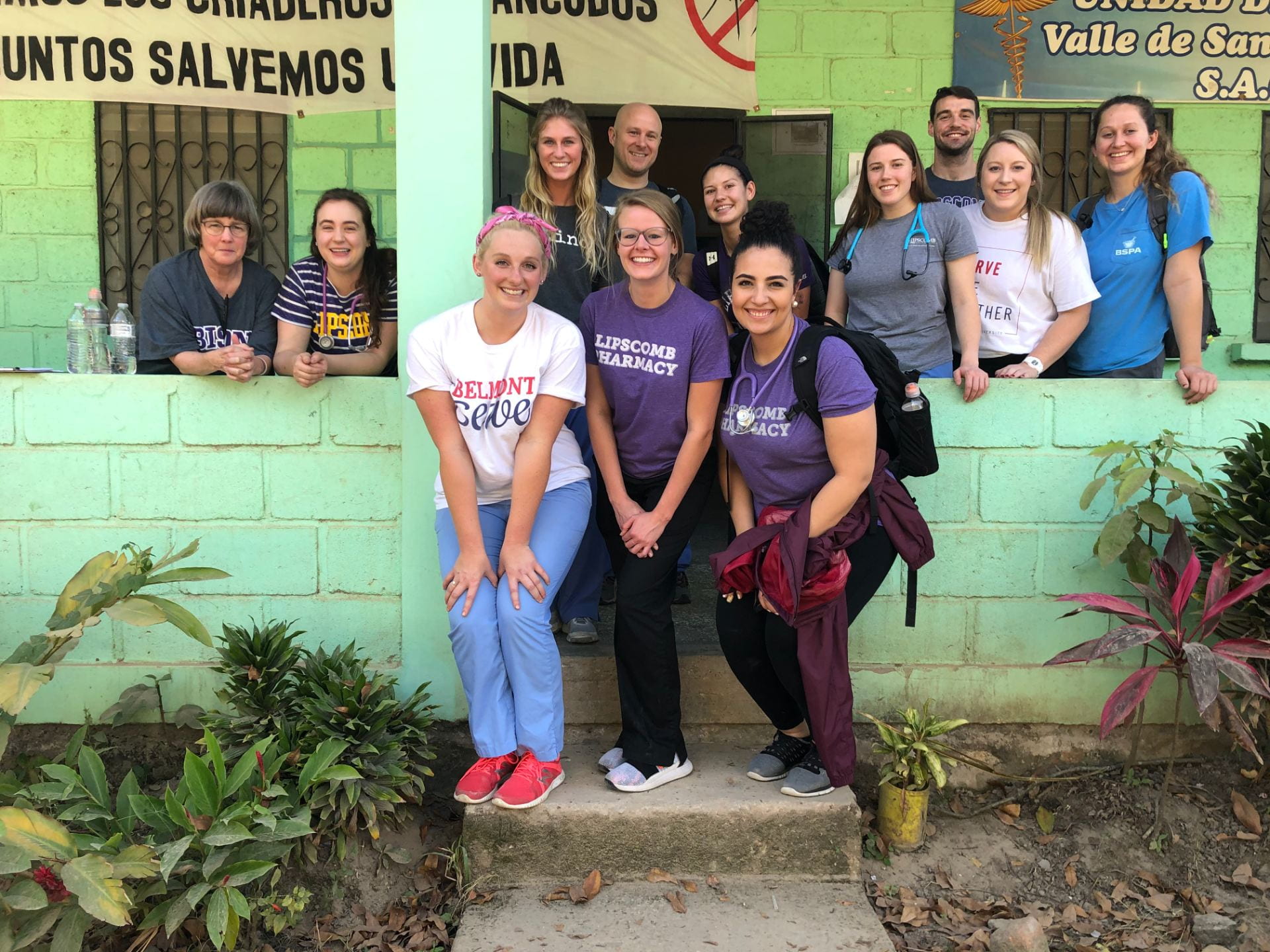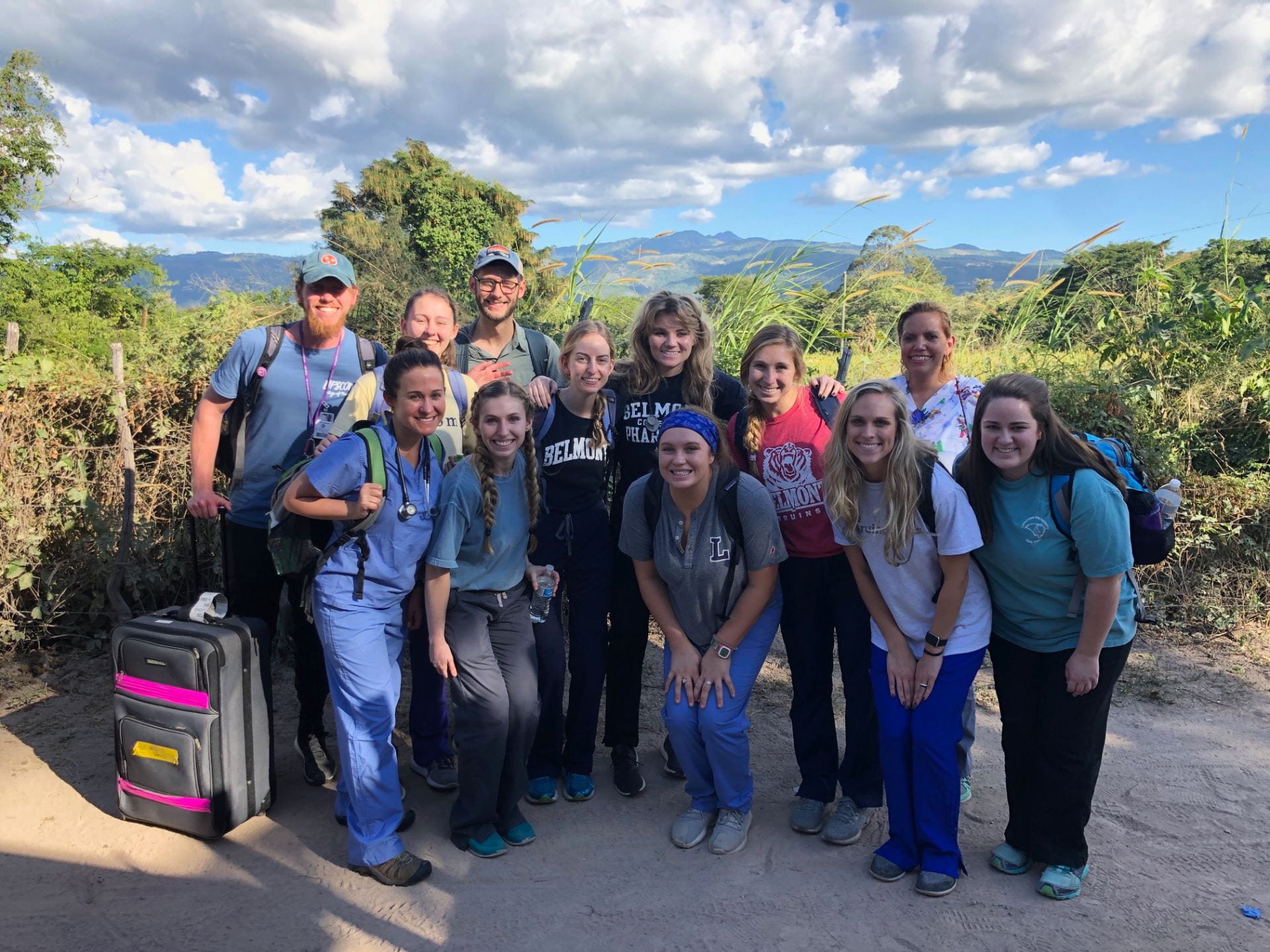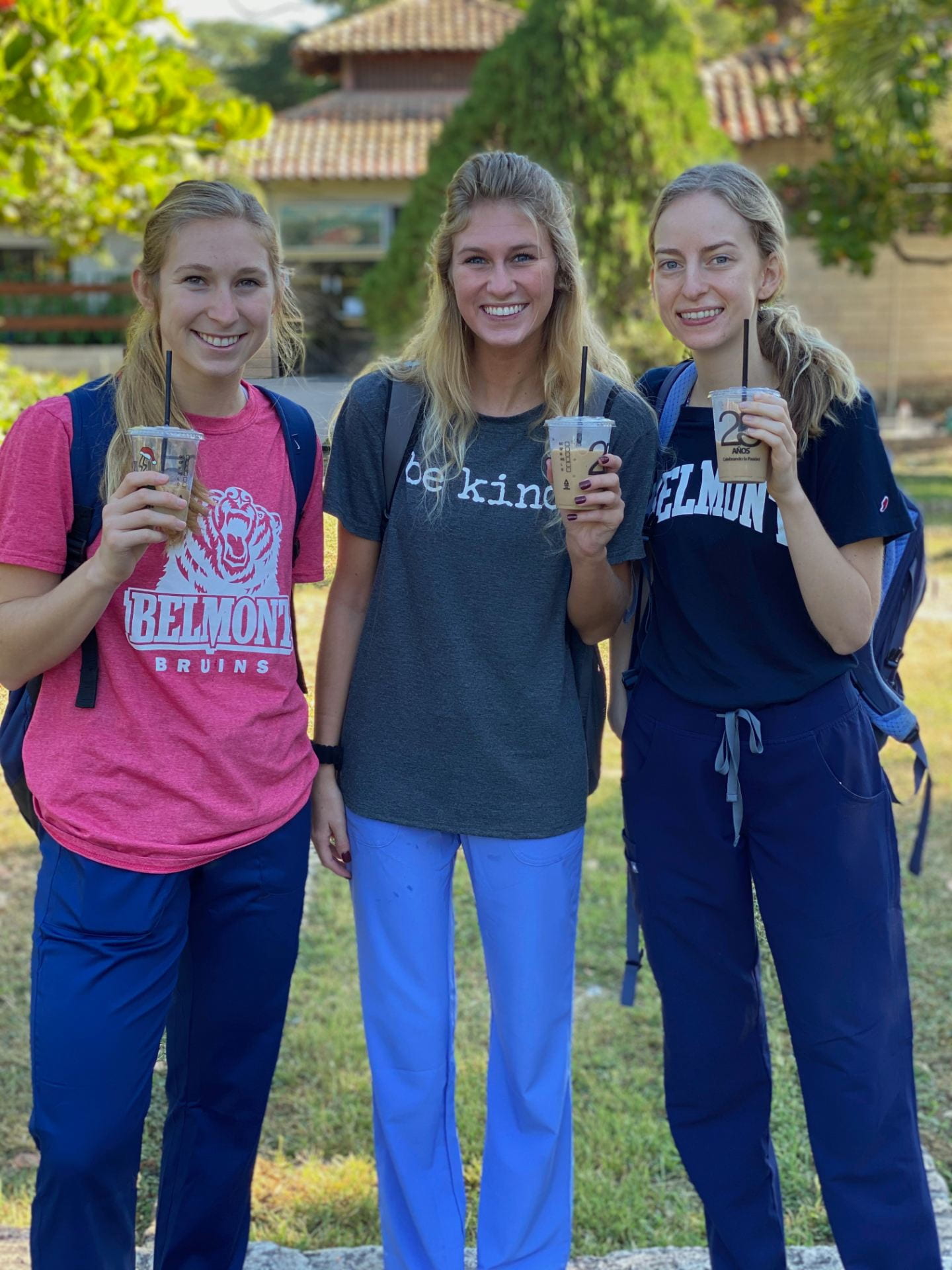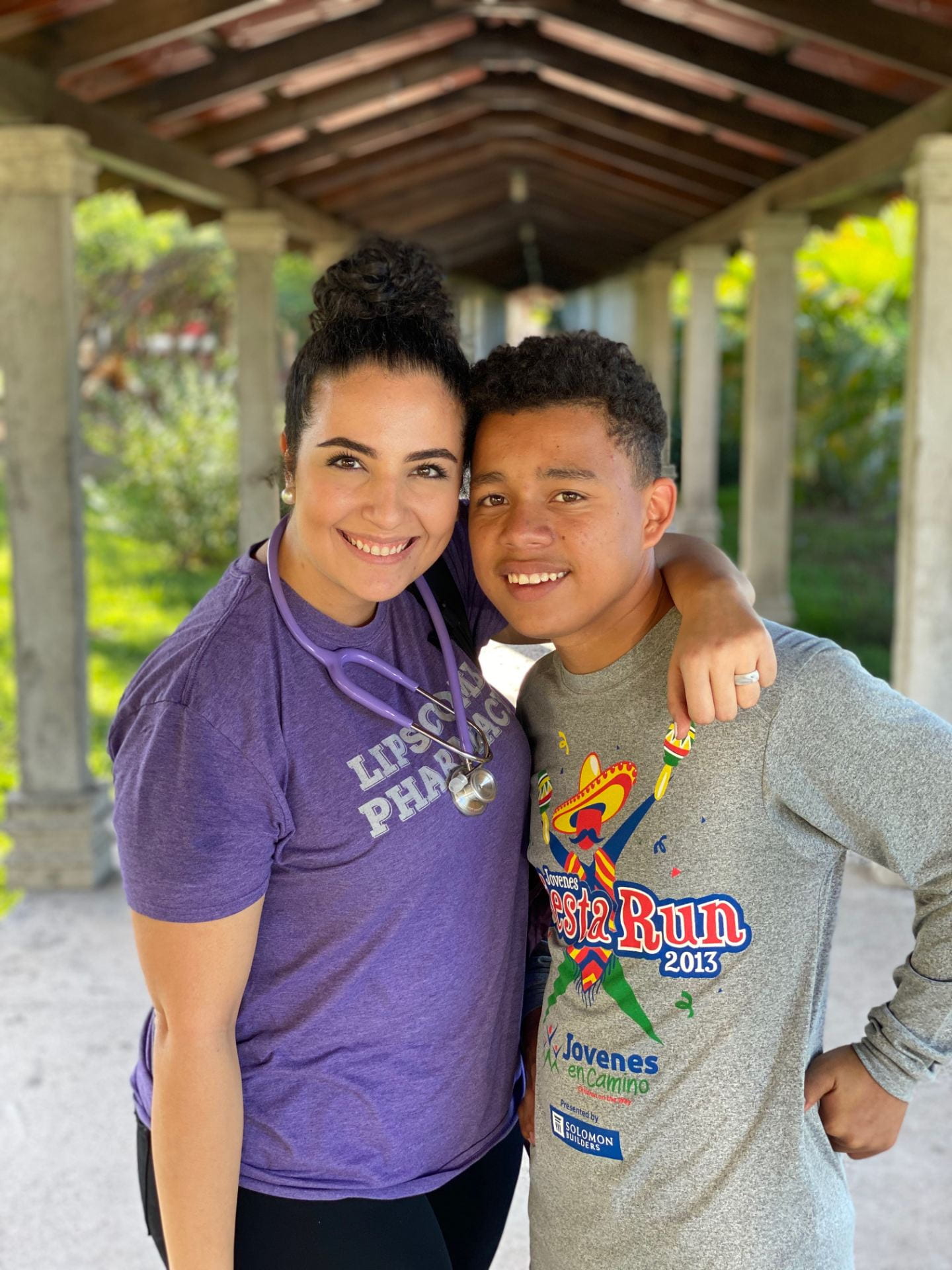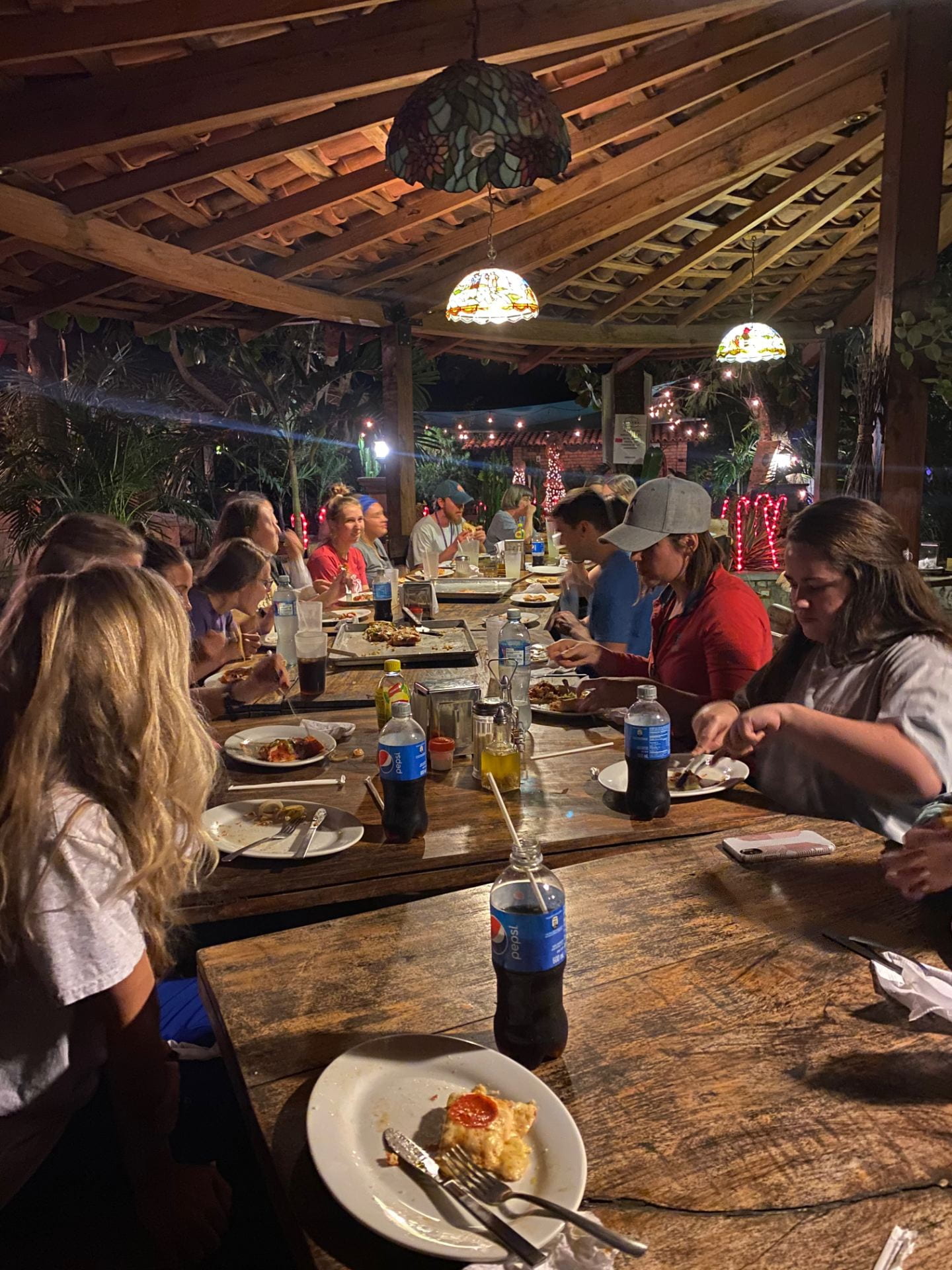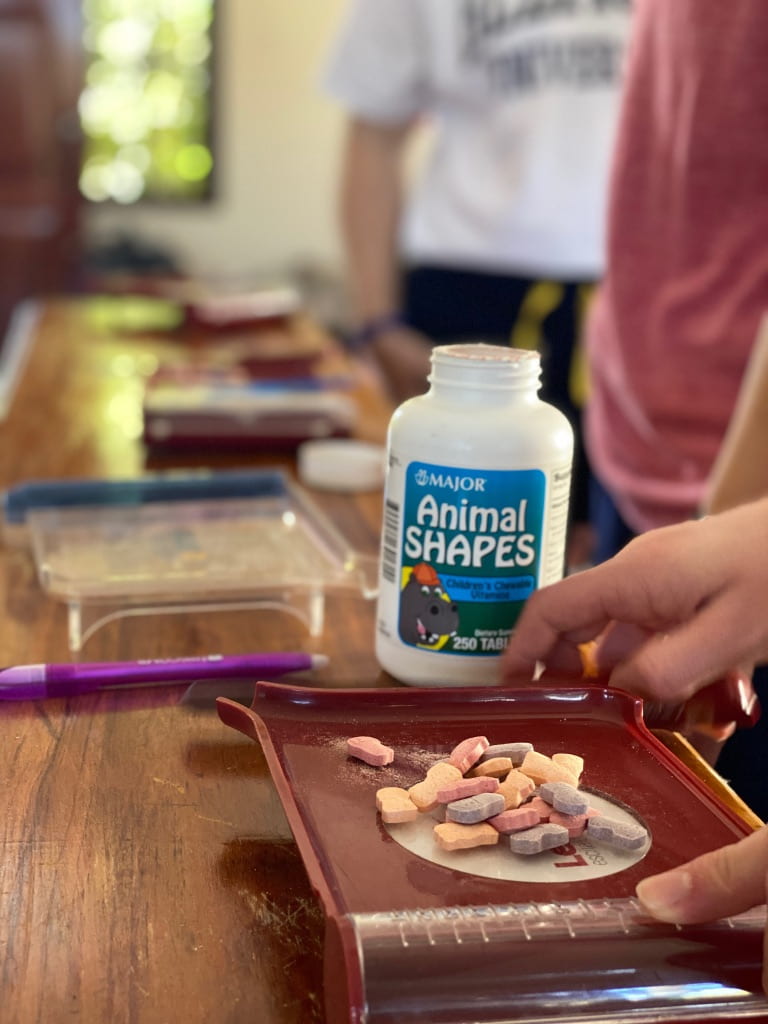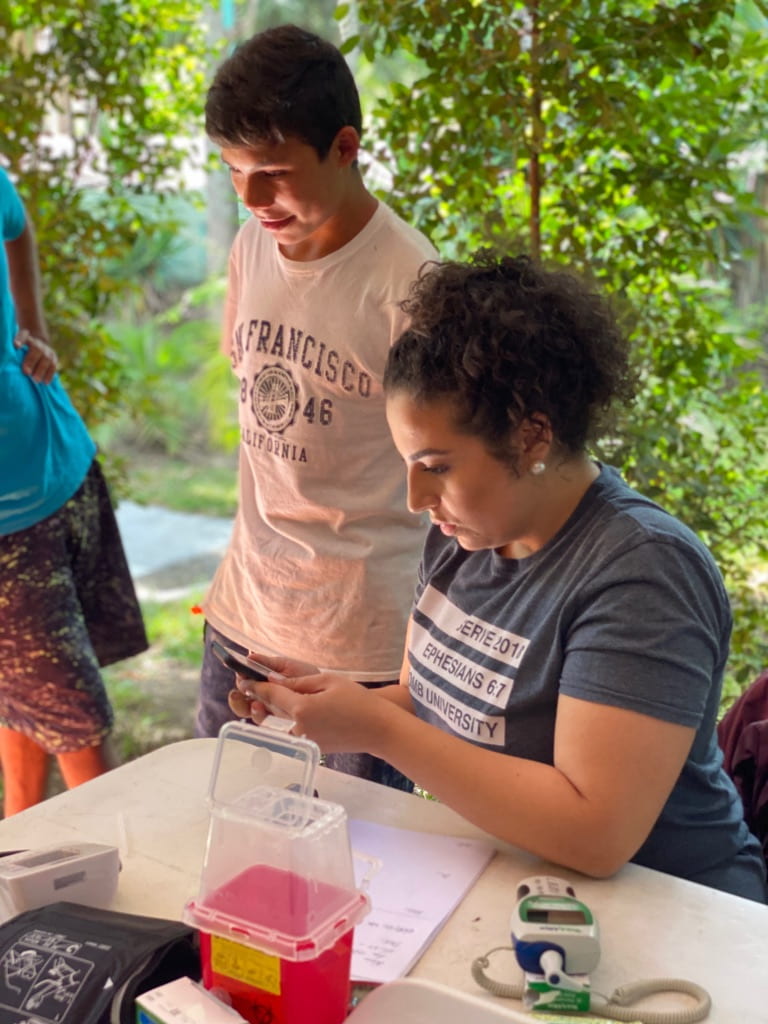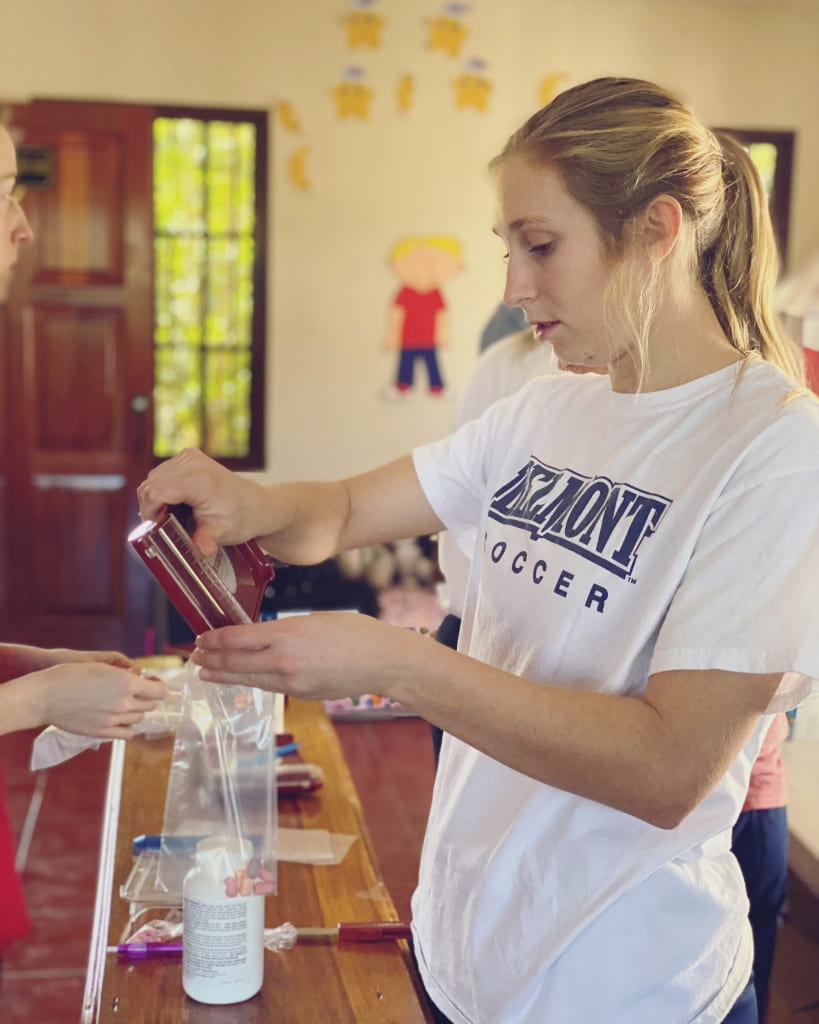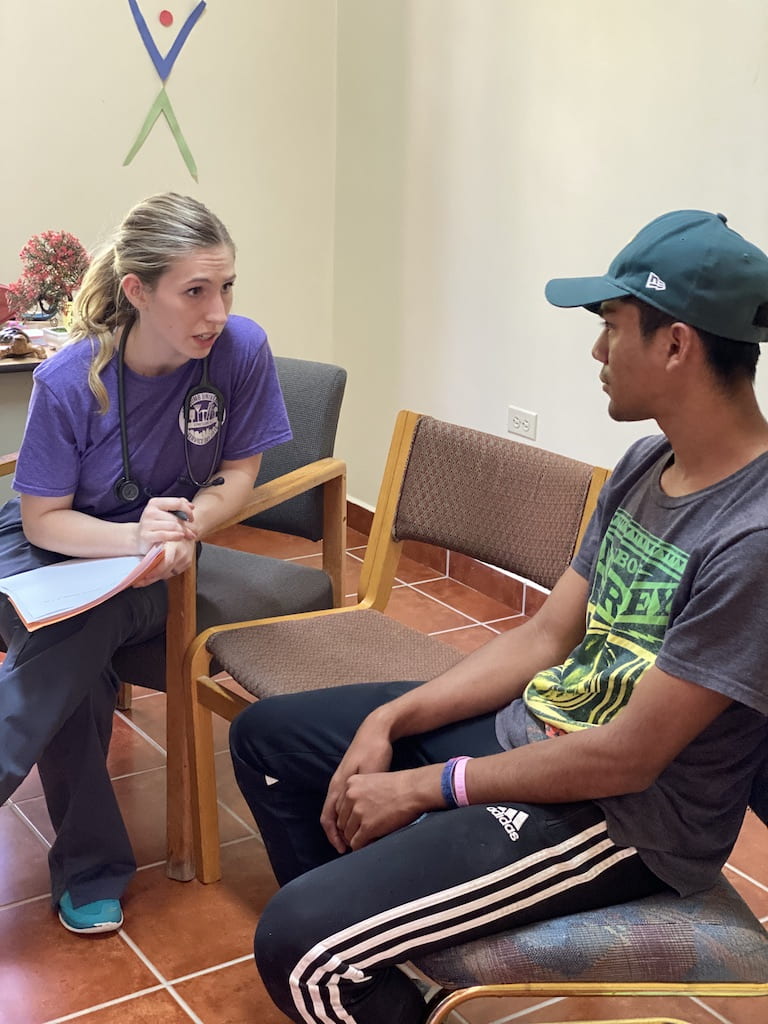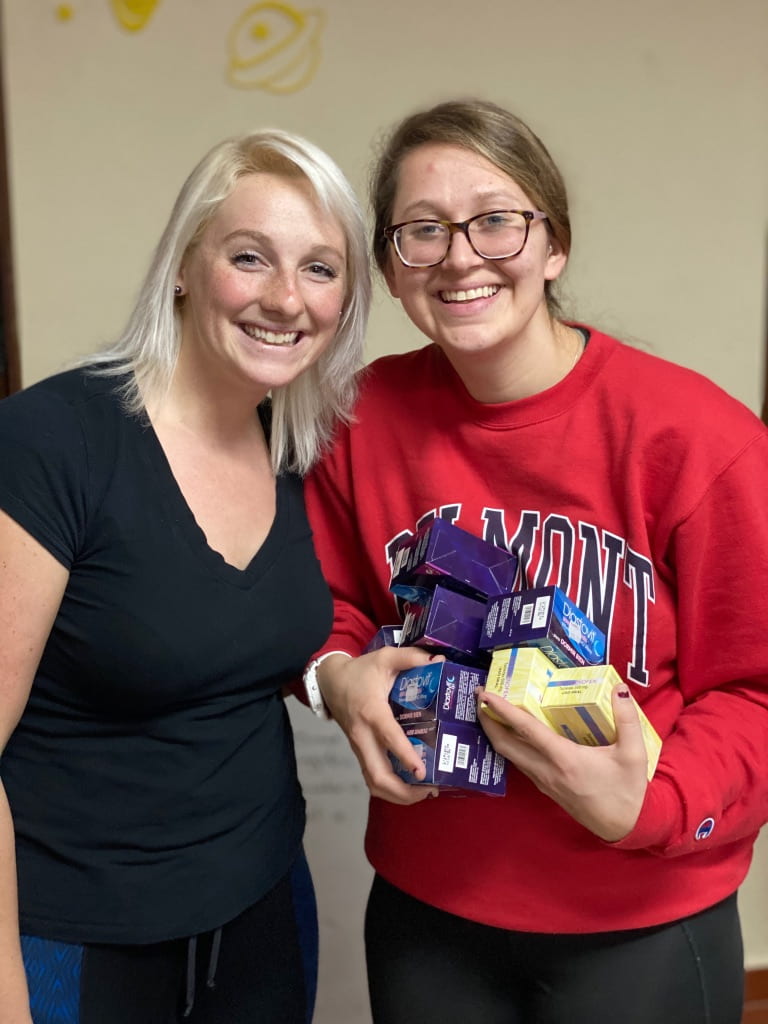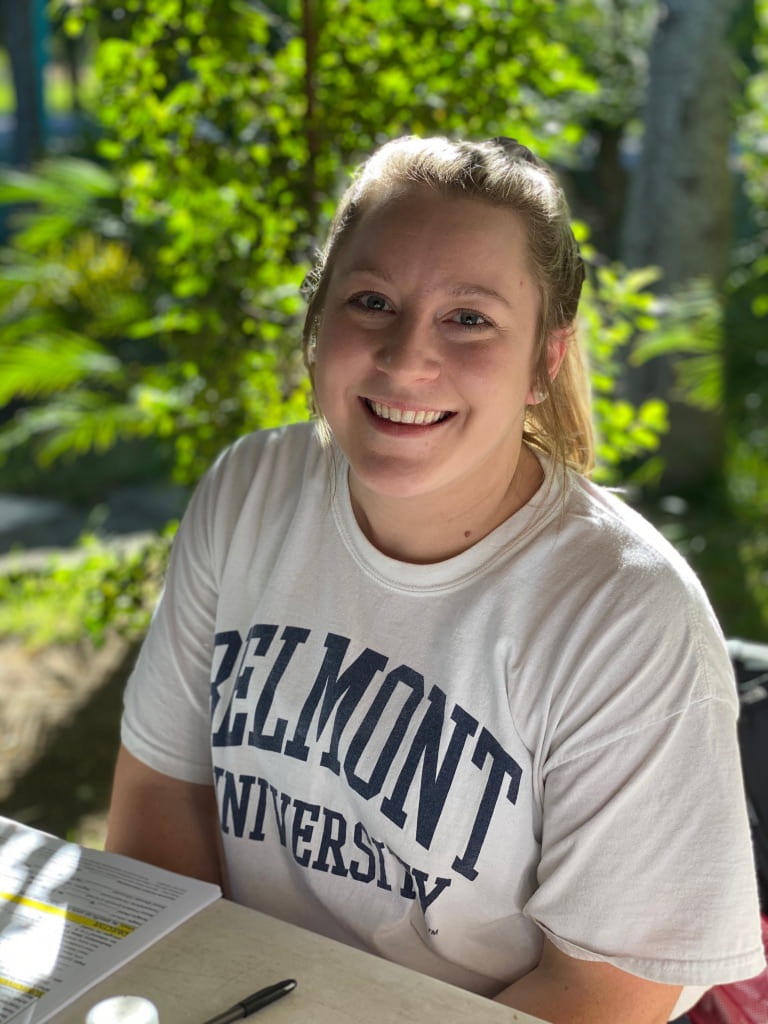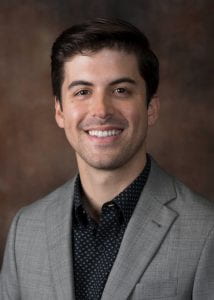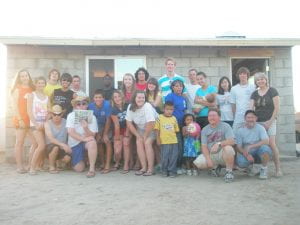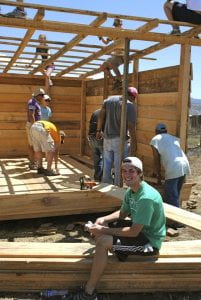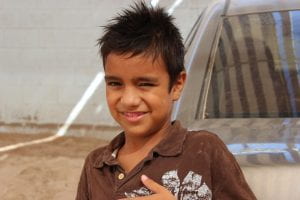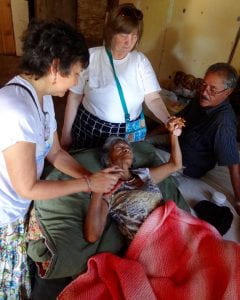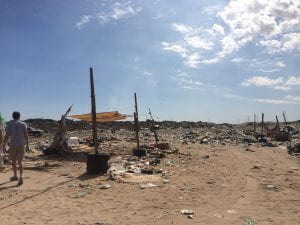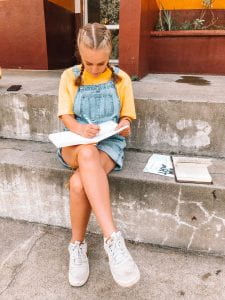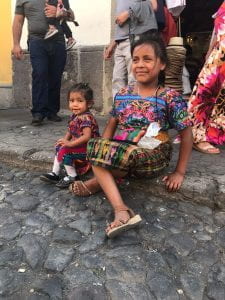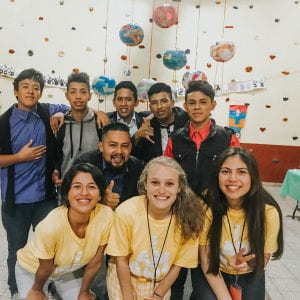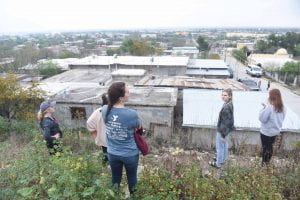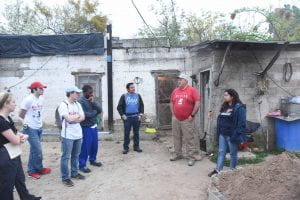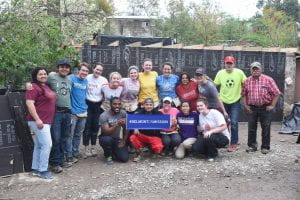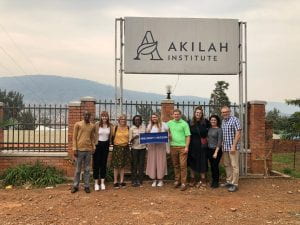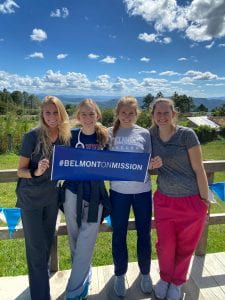
Today is the last day of the trip and I couldn’t be more thankful to be able to serve on the mission trip this week. The day started off at the clinic site with the most gorgeous view of the mountain. Between the view and the people of the community, I had an overwhelming sense of gratefulness, peace, and gratitude.
While working in the pharmacy, we were asked if anyone would like to deliver a food bag to a family in need. I felt very compelled to be apart of delivering the food bag and praying with the family. After delivering the food bag, Kirio, the preacher and pastor of the community, asked if we would do a house visit to a local woman who was home ill and was unable to come to the clinic. Upon arrival, we met an older woman, Julia, in bed. Julia was in extreme pain to a huge mass that was discovered in her colon. There wasn’t much we could do, but when we asked if there was anything we could do they asked for prayer. We prayed for/with Julia and left with the promise of coming back to deliver some medication to help her find relief as well as bring back a doctor. The family gifted us with a bundle of plantains as a thank you gift for coming to see them. I was speechless and kept thinking that we didn’t do anything except pray. I couldn’t comprehend that this family, who just got these plantains from the field and was going to be using them as their dinner, had just gifted us with their meal. I had so many emotions running through my mind that I was having trouble processing it. When we returned with the medications and the doctor, we found out the unfortunate news that Julia had colon cancer. Palliative care is her only option at this time. I was beyond heartbroken to hear the news and as a group, we continued to pray for her well being. We also prayed for God to help her find some relief. As we were leaving, I leaned down to say my goodbye while Julia continued praying and thanking God for sending us to help her. I was brought to tears but was able to take away how selfless, grateful, and appreciative Julia was. I was able to leave knowing that Julia was going to find some relief and was beyond blessed to have been able to pray with her as she fights this awful disease.
Overall, I get to leave this trip with so much love, new memories, and lasting relationships. I am already counting down the days until I can serve with God once again to love and serve my neighbor.
— Emmy Lupari, College of Pharmacy student

